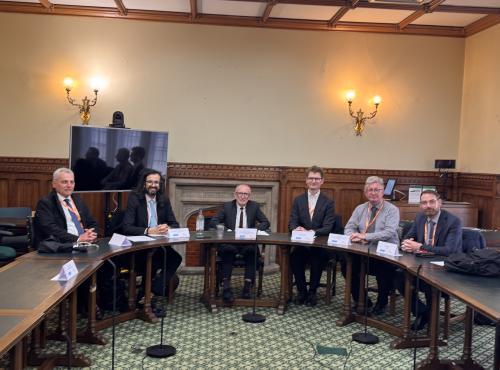Ofgem announces future CO safety initiatives
On the 24 May, the Office of Gas and Electricity Markets (Ofgem) published their decision on the RIIO-2 sector-specific methodology consultation. The announcement brings significant changes to how Gas Distribution Networks (GDNs) will combat carbon monoxide (CO) poisoning in the future, as the regulator signals a shift to stronger (but more flexible) expectations of the Big Four.
What's new?
The RIIO-2 regulatory period (2021-26) will introduce a number of new policies relevant to CO safety work undertaken by the GDNs, including:
- A £30 million "use-it-or-lose-it" allowance distributed to the GDNs for CO safety and consumer vulnerability initiatives, 25% of which is ring-fenced for collaborative projects between the GDNs;
- A principles-based Licence Obligation requiring GDNs to incorporate supporting vulnerable consumers into their business-as-usual operations; and
- A reputational Outcome Delivery Incentive (ODI) designed to highlight GDN best practice in consumer vulnerability, including CO safety.
What's changing?
These policies will be accompanied by revised versions of existing initiatives:
- The Fuel-Poor Network Extension Scheme (FPNES) will return alongside new measures to make the FPNES better targeted and more closely aligned with the Government's decarbonisation objectives;
- The Network Innovation Allowance (NIA) is being retained, though with a greater emphasis on funding for long-term energy transitions and supporting vulnerable customers; and
- The Business Plan Incentive is being significantly expanded to encompass several new and former schemes, such as the Stakeholder Engagement Incentive (SEI).
What does this mean?
Broadly speaking, Ofgem's expectations of the GDNs in CO safety and consumer vulnerability are becoming stronger. For example, the Business Plan Incentive can financially penalise GDNs if they fail to detail their strategies for identifying and support vulnerable customers, as detailed in the new Licence Obligation described above.
Yet these reforms also give GDNs an unprecedented amount of flexibility in meeting these expectations. Previously, GDNs had to apply for Discretionary Reward Scheme (DRS) funding after initiatives were implemented. This limited the number and responsiveness of GDN-funded CO safety initiatives, as GDNs risked not receiving DRS funds. To address this, RIIO-2 will scrap the DRS and replace it with the "use-it-or-lose-it" allowance. This new scheme requires GDNs to detail strategies for the funding (rather than specific projects after they've occurred) and this should enable GDNs to be more responsive and confident in their funding of CO safety and consumer vulnerability initiatives.
This trend can also be observed in the aforementioned reforms to the SEI and NIA, which both indicate Ofgem's apparent desire to reduce administrative burdens and evaluate the GDN's strategic direction, rather than their individual projects.
What happens next?
Ofgem are expected to open up a consultation on their Consumer Vulnerability Strategy shortly whilst the GDNs will continue to develop their business plans until the end of the year. We will continue to feed into these consultations and highlight the importance of tackling CO poisoning's impact on all households, especially those in vulnerable circumstances. If you would like to learn more oliver.buckley-mellor [at] policyconnect.org.uk (please feel contact us).




